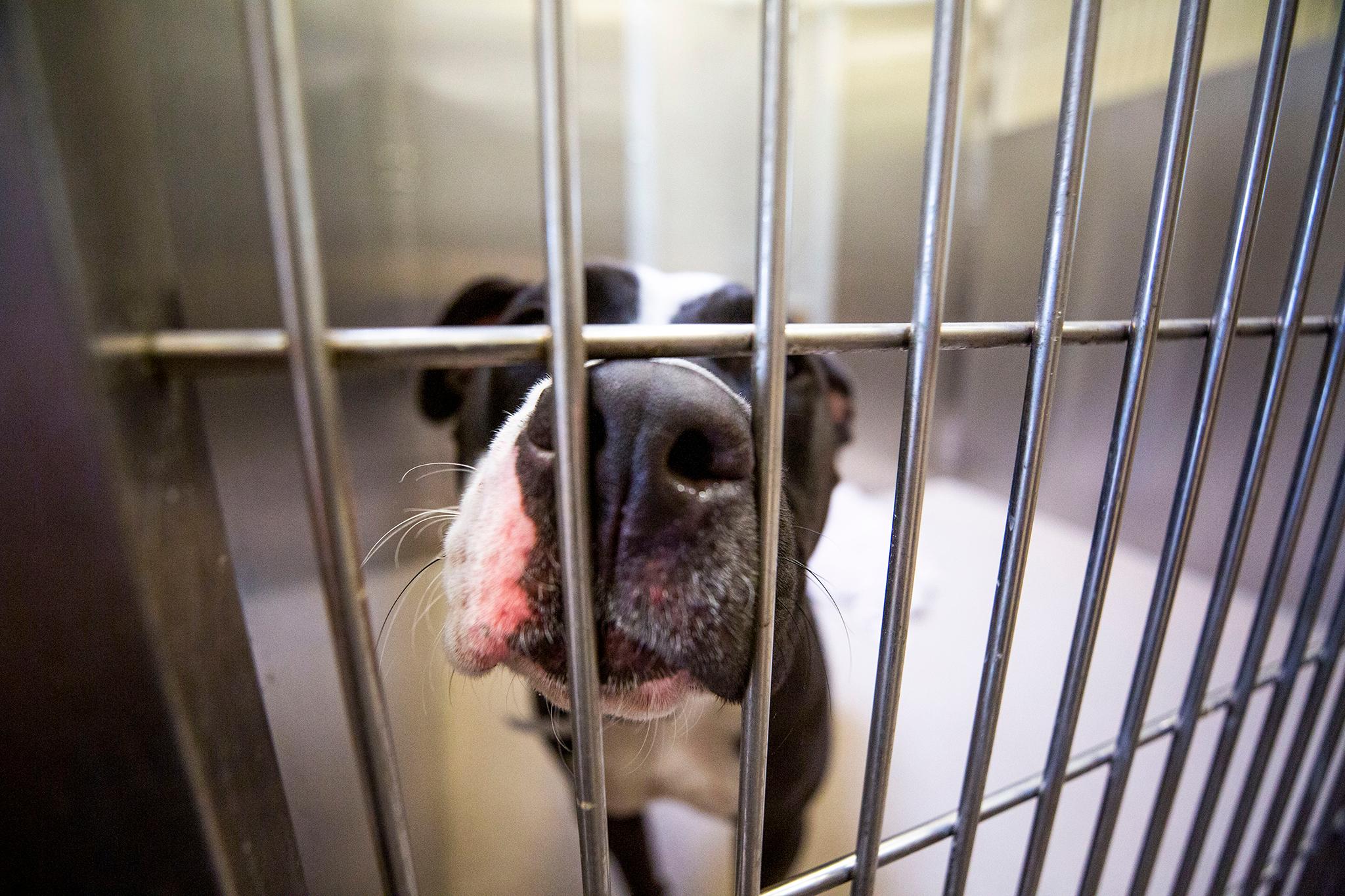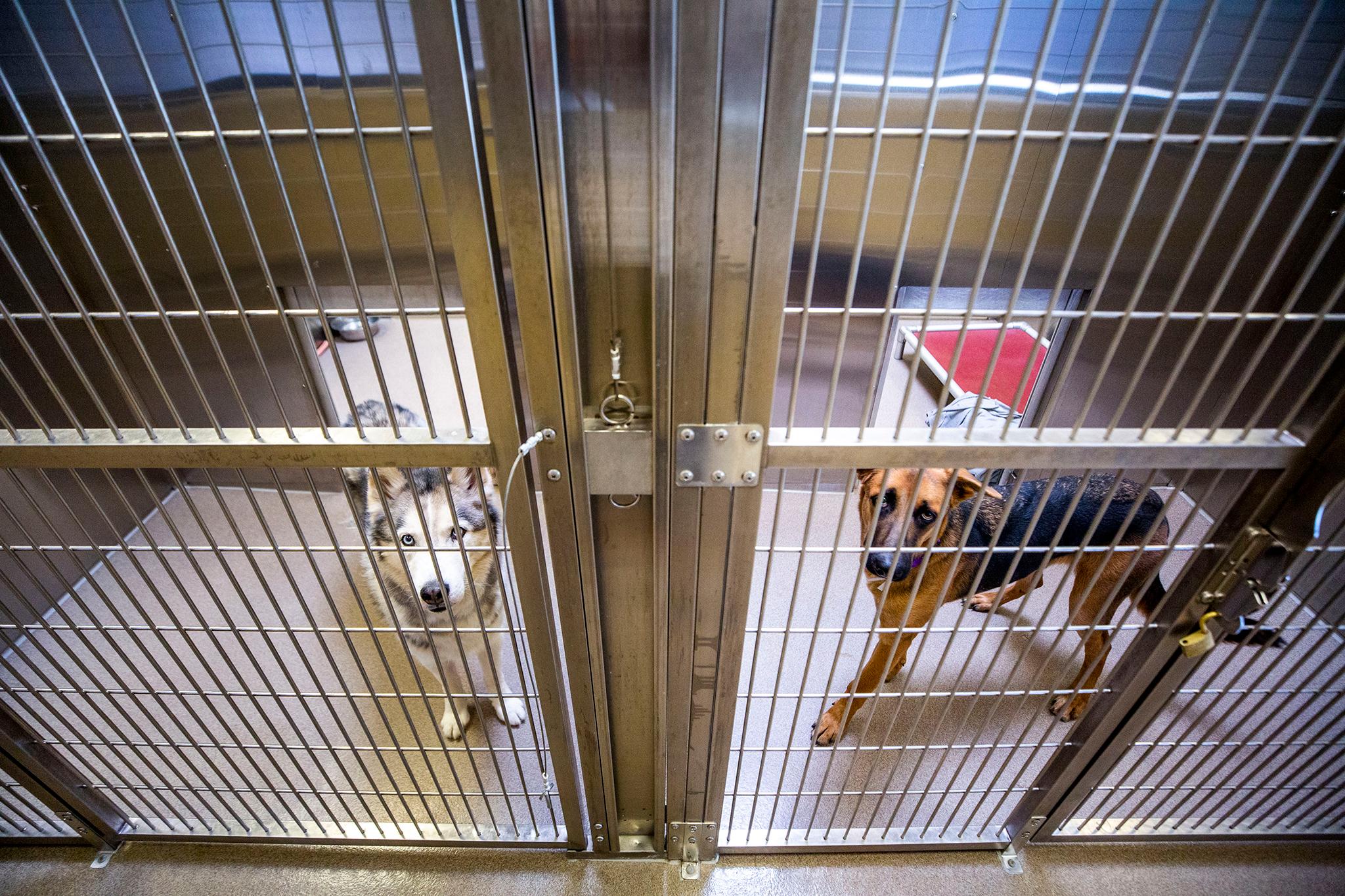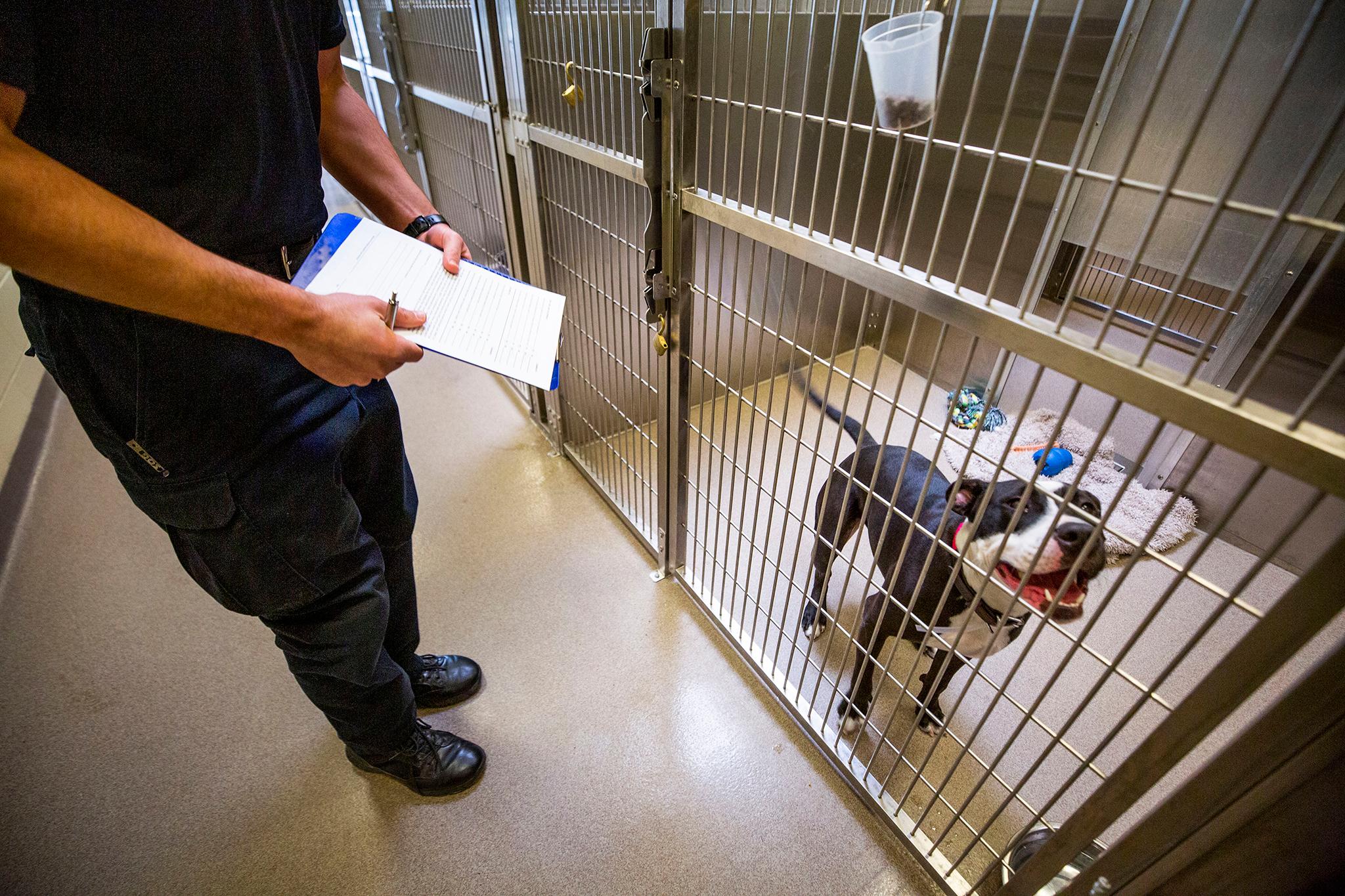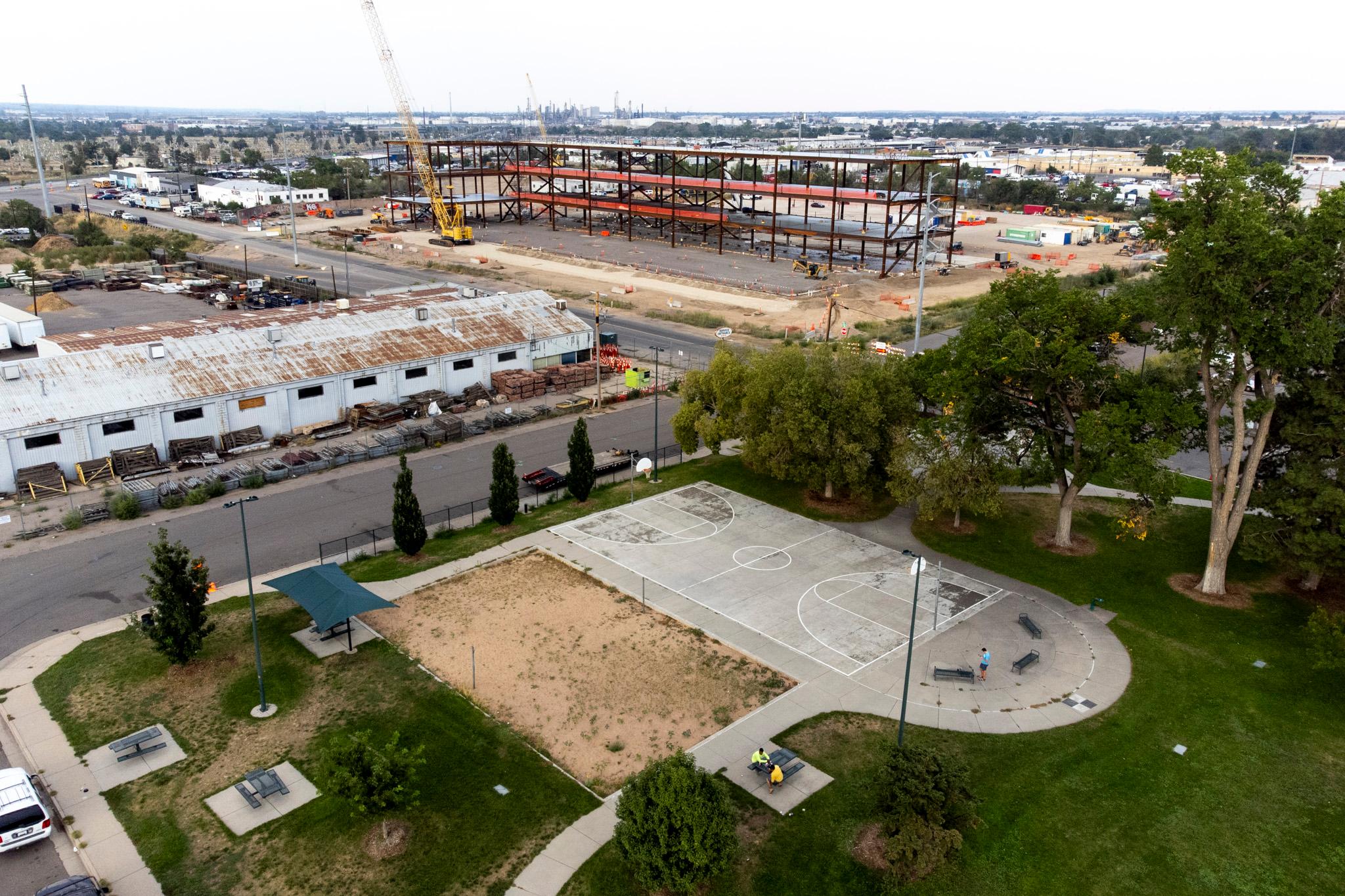The stray came in from far northeast Denver. She had no name.
As Denver Animal Protection Sgt. Avery. Borden examined her from outside a metal kennel on Tuesday, he quickly noticed characteristics from some of the three pit bull breeds defined in the city's law. Those breeds include the American Pit Bull Terrier, American Staffordshire Terrier and Staffordshire Bull Terrier.
"Just by looking at her, she's not a purebred pit bull," Borden said, as barking echoed around him. "She's a little on the bigger side, but her body shape, how muscular she is -- the way she kind of carries herself -- you can just see those back legs how muscular she is, that is a definite pit bull characteristic."
The dog came into the Denver Animal Shelter on Monday, joining about 50 other lost-and-found dogs. She seemed friendly, circling the inside of her pen and sniffing Borden's hand when he brought it to the metal bars. She was eager to get out of the kennel.

Breed assessments that determine whether a dog is a pit bull started after voters in November effectively overturned the city's decades-long ban on them by creating a permitting system. Anyone who wants to legally register their pit bull will need to complete a breed assessment as part of that permitting process.
It takes three Animal Protection staff members to complete the assessment.
Each person who looks at the dog has a checklist, and they examine everything from the dog's head to its body and legs. The checklist asks questions like "Does the dog have pronounced jaw muscles?" and "Does the dog have a well-defined, muscular body?" that help the examiner evaluate the dog's breed. Borden said if one person disagrees, the dog is not deemed a pit bull.
The listed characteristics come from American Kennel Club and United Kennel Club breed standards for the three breeds mentioned in the city's law. Borden noted a dog can meet all the characteristics but not be designated a pit bull; it could wind up being an American bulldog, for example, or other breeds with similar traits.
City public health spokesperson Kyle Wagner said it's up to Animal Protection staff members to determine whether the dog "substantially conforms to breed standards," which is a determination they make based on their breed knowledge and with help from the checklist.
The unnamed female dog, for example, was determined to be a predominately pit bull mixed breed.
Animal Protection Lt. Josh D. Rolfe said assessing a stray dog usually takes about three to five days, depending on staff availability. An owner-requested assessment will take closer to 30 or 45 minutes, he said.
The new pit bull permit isn't available yet.
They'll become available on Jan. 2. Animal Protection started sending out information about the permitting process shortly after the November election.

"There's people that are preparing to come in with their dogs and there will probably be quite a bit of requests in January," Rolfe said.
The price for the permit has not been set, though Wagner said her office is recommending $30. In addition, owners will need to pay $15 for a dog license (all dogs in Denver are required to be licensed) and $25 for the breed assessment.
Because of the new law, Borden said Animal Protection is taking a "less enforcement" approach to the city's ban. Getting a pit bull that had been confiscated back from the city used to be a lengthy process. Now, people will get a letter asking them to come back in January to get a permit for the dog if they plan to keep them in Denver.














